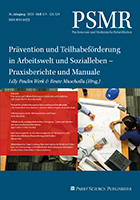The authors argue that healthy leaders promote healthy employees and organisations and thereby promote job-satisfaction, organisational commitment
and the success of the organisation. The reader understands the interconnectedness of health, well-being and the ability to manage conflicts professionally
across cultures.
One of the most important training interventions to create transcultural organisations is developing effective multicultural teams by emphasising their potential.
Cultural diversity provides the biggest asset for teams with difficult, discretionary tasks requiring innovation. Mayer and Boness suggest the following guidelines:
- All members must be selected for their task-related abilities and not for their athnic belonging.
- If the task is routine, homogenous groups are preferable; if the task is innovative, multicultural membership is best.
- Team members must be aware of dealing with different cultures.
- The goal is to facilitate a better understanding of cross-cultural differences and generate a higher performance.
- Members of diverse teams must have equal power, so that everyone can participate in the process.
- Cultural dominance is always counter-productive.
- It is important that all members have mutual respect for each other.
- Mutual respect means that the question of good or bad ideas or decisions is never raised: Managers must give teammembers positive feedback on their process
and output to value and celebrate their diversity, recognize contributions made by the individual members, and trust the collective judgement of the group.
Literatur zum Thema
Claude-Helene Mayer, Christian Martin Boness: Creating mental health across cultures. Coaching and training for managers. Pabst, 276 pages,
Paperback 978-3-89967-839-0
weitere Informationen























